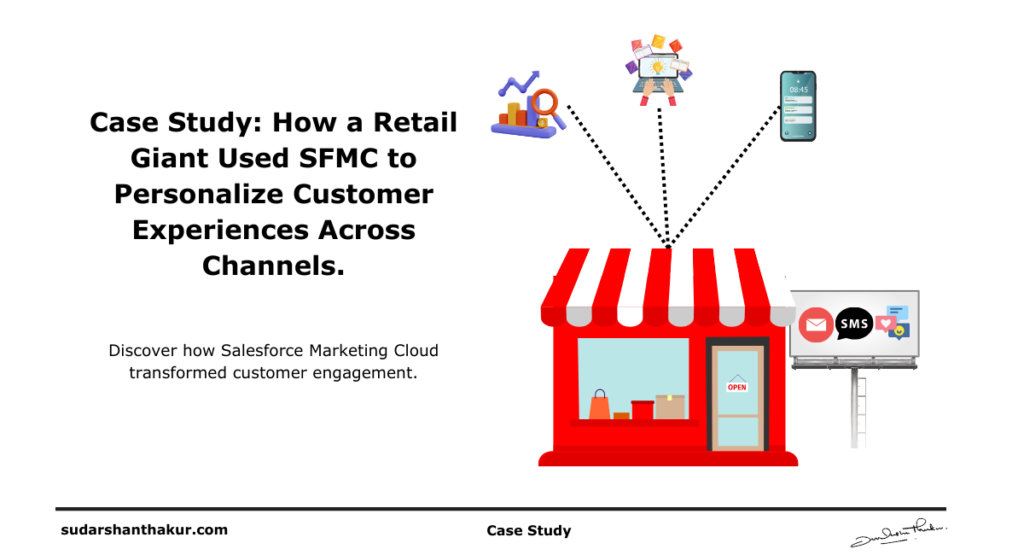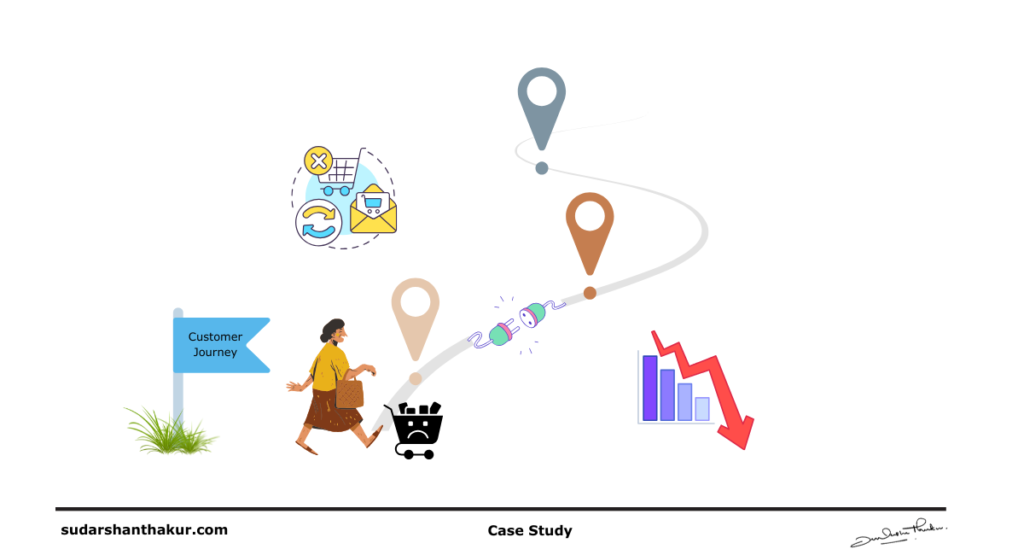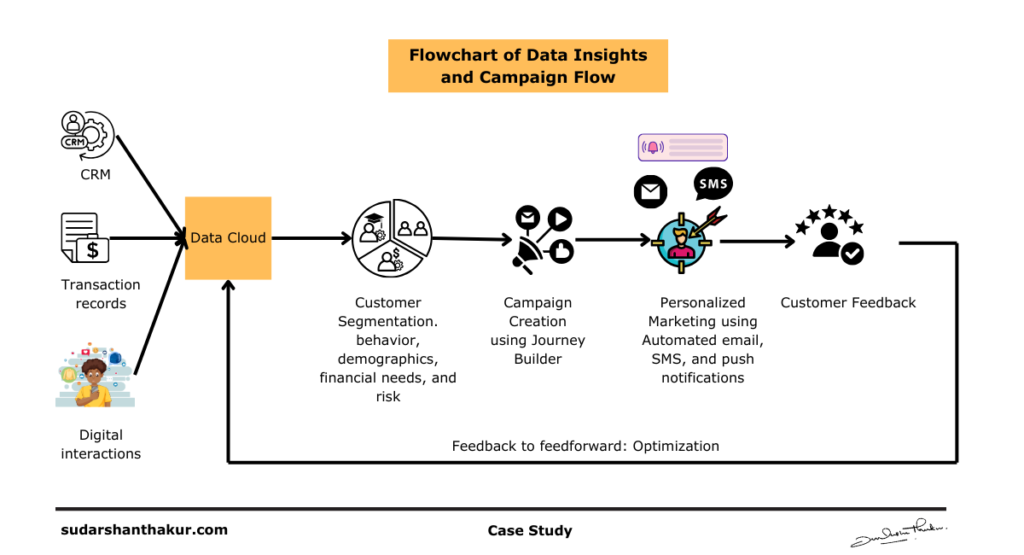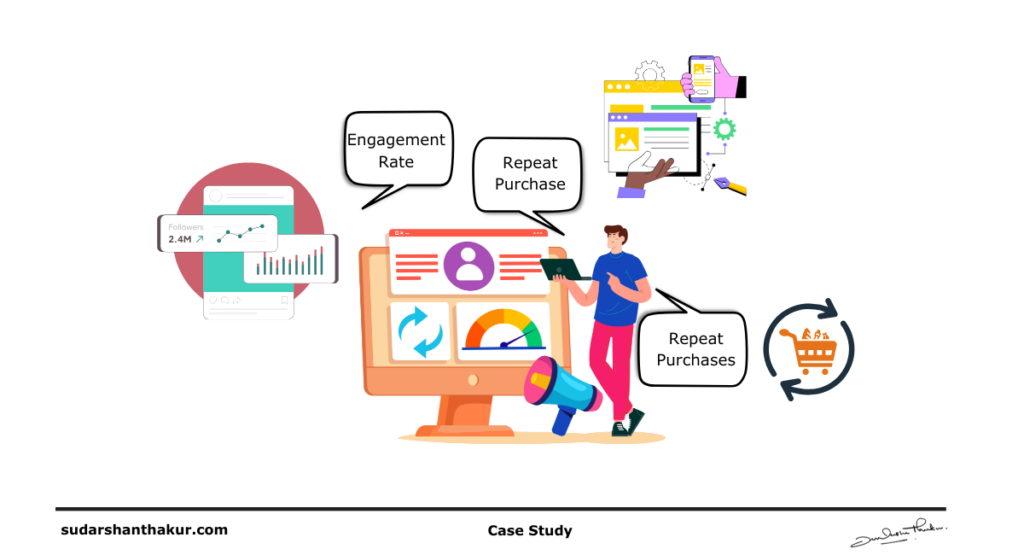Case Study: How a Retail Giant Used Salesforce Marketing Cloud to Personalize Customer Experiences Across Channels

The Art of Personalization in Retail
Imagine walking into your favorite store and the sales associate greets you by name, knows your preferences, and suggests exactly what you’re looking for. This level of personalization, now achievable in the digital world, is precisely what a retail giant accomplished with Salesforce Marketing Cloud (SFMC).
In this blog, we’ll explore how this company revolutionized its customer experience using SFMC, driving engagement and loyalty like never before.

Problem Statement
The Challenge: Disconnected Customer Journeys
This retail giant, a household name in fashion, faced a pressing issue. Despite having a massive customer base and a robust online presence, their customer engagement felt fragmented. Emails, social media ads, and in-app notifications were working in silos, delivering generic messaging. Customers felt unseen, leading to declining loyalty.
Key Challenges:
- Lack of a unified customer view.
- High cart abandonment rates due to impersonal follow-ups.
- Inefficient targeting leading to wasted marketing budget.
Solution: Salesforce Marketing Cloud to the Rescue
Enter Salesforce Marketing Cloud. With its robust tools like Journey Builder, Einstein AI, and Data Cloud integration, the retail giant could finally bridge the gap between their data and marketing efforts.
Steps Taken:
- Unified Customer Profiles: Integrated SFMC with their CRM to create a single view of each customer.
- Journey Builder Implementation: Designed multi-channel campaigns that mapped personalized journeys for every customer.
- AI-Powered Insights: Leveraged Einstein to recommend products and predict purchase likelihood.
- Real-Time Engagement: Used Automation Studio for timely cart abandonment emails.
Data Model: Unifying Customer Data with Salesforce Data Cloud
The backbone of this personalization strategy was the seamless integration of customer data. Here’s how the retail giant structured its data model for SFMC success.
Customer Data Sources:
- Website activity, app interactions, and in-store purchases feed into a central data repository.
- Social media platforms like Facebook and Instagram provide engagement data.
Data Consolidation in Salesforce Data Cloud:
- All raw data is unified and cleaned to create a 360-degree customer profile.
- Integration with Salesforce CRM ensures real-time updates.
SFMC Campaign Activation:
- Journey Builder pulls customer segments from the Data Cloud to initiate campaigns.
- Einstein AI uses predictive analytics to enhance targeting.
Performance Tracking:
- Campaign results are fed back into the Data Cloud for iterative improvements.

Marketing Strategy: Driving Personalization with SFMC
No successful implementation of Salesforce Marketing Cloud is complete without a robust marketing strategy. This retail giant didn’t just rely on the platform—they paired it with a well-thought-out plan to maximize its capabilities.
Key Elements of the Strategy:
- Segmentation and Targeting:
- Used demographic and behavioral data to create hyper-specific customer segments.
- Example: High-value customers received early access to exclusive deals.
- Omnichannel Campaign Planning:
- Developed a unified content calendar to synchronize messaging across email, social media, and SMS.
- Ensured consistent branding and tone across platforms.
- Customer Journey Mapping:
- Created detailed maps for each customer segment.
- Example: New customers received a welcome email series, followed by personalized product recommendations.
- Automation and AI Integration:
- Used Einstein AI to optimize email send times and predict customer behavior.
- Automated follow-up messages based on customer interactions, like cart abandonment emails triggered within 24 hours.
- Performance Analysis and Iteration:
- Leveraged SFMC’s reporting tools to monitor campaign performance.
- Iteratively improved campaigns through A/B testing and detailed analytics.

Results: Transforming Engagement and Driving ROI
Within six months, the results were nothing short of extraordinary. By delivering hyper-personalized experiences, the brand reclaimed customer trust and loyalty.
Key Metrics:
- 40% Increase in Engagement Rates: Personalized emails saw higher open and click-through rates.
- 20% Reduction in Cart Abandonment: Timely follow-ups converted more carts to sales.
- 35% Growth in Repeat Purchases: Customers appreciated the tailored recommendations.
Lessons Learned and Key Takeaways
The retail giant’s journey highlights that successful personalization isn’t just about tools—it’s about strategy.
Actionable Takeaways:
- Data Integration Is Key: Ensure all customer data is unified in SFMC for seamless personalization.
- Test and Iterate: Run A/B tests to optimize campaigns continually.
- Focus on Value: Personalization works when it genuinely solves customer pain points.
Conclusion: A New Era of Customer Engagement
This case study showcases how Salesforce Marketing Cloud empowers brands to meet the modern customer’s expectations. By prioritizing personalized experiences, this retail giant not only drove revenue but also created a loyal community of customers.
How I Can Help:
If you’re looking to achieve similar results, I can guide you every step of the way. From setting up Salesforce Marketing Cloud to designing customer journeys, I specialize in creating data-driven strategies that deliver tangible results. Let’s transform your customer experience together.
